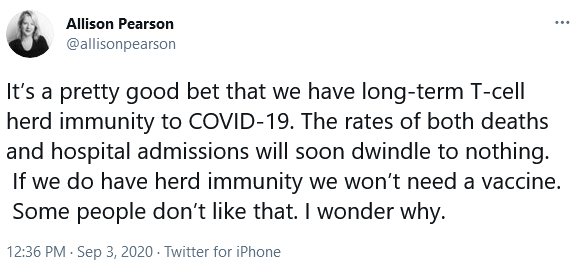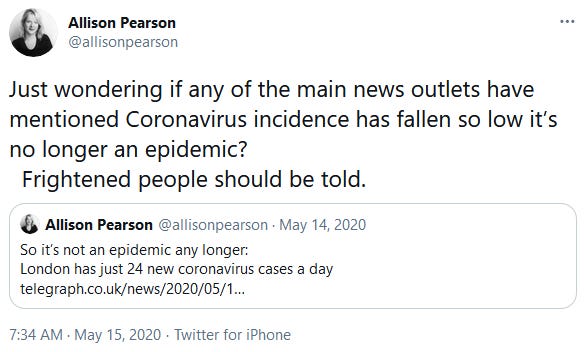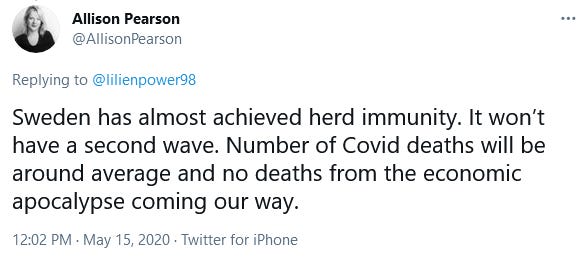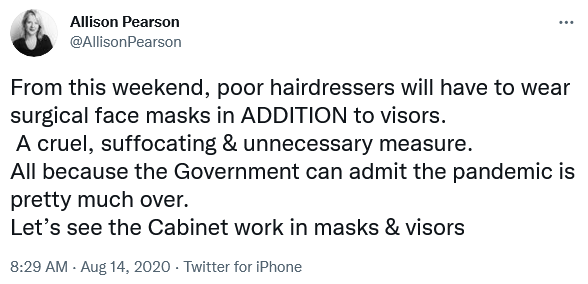Conversations With Bell Ends: What links Allison Pearson on Sally Rooney, Sarah Vine’s Superman sneer and Richard Littlejohn writing about maggots?
It’s time for another bad faith bonanza!
Previously: The Legion of Tactical Amnesiacs: Towards a new unified theory of "Columnist's Brain"...
There’s a catchphrase that Richard Littlejohn — The Daily Mail columnist who I am sorry to say will play a role in today’s newsletter alongside a far more useful creature (maggots) — has used in practically every article he’s written for the past 30 years: “You couldn’t make it up…” He does, of course, but today’s edition is about a variation on that theme: Why columnists can’t and won’t look it up.
Scrabbling around in the rubbish bins of the news, like feral foxes with nowhere near the same level of charm, columnists — especially those who’ve been doing the job for decades — can be desperate for a line. And once they’ve found one they’ll usually file it down to the most simplified, anger-inducing take possible. Column writing is no place for “on the one hand/one the other” equivocation or respect for inconvenient things like facts.
And that’s how we come to look at Sally Rooney, Superman, and maggots in quick succession today. What brings these disparate topics together is the willingness of British newspaper columnists to opine on them while deploying a stunning but professionally advantageous level of tactical ignorance, dropped like a dirty bomb of dipshittedness.

Last month, the Israeli newspaper Haaretz syndicated an interview with Sally Rooney from the New York Times, republishing it in Hebrew and adding more detail including that:
When Modan [the Israeli publishing house that put out translations of her first two novels] approached Rooney's agent in an attempt to sign another translation deal, the agent announced that Rooney supports the cultural boycott movement on Israel and therefore does not approve translation into Hebrew.'
This detail went largely unremarked upon until it was picked up by an op-ed writer for the Jewish American site Forward. Giti Levy-Paz wrote, in a piece that had its headline adjusted in the light of a subsequent statement from Rooney, that the writer “refused to allow her new novel to be translated into Hebrew”. Levy-Paz continued:
I’m not suggesting that Rooney is anti-Semitic, or that criticism of Israel automatically constitutes antisemitism. But given the rise of antisemitism in recent years, especially in Europe, the timing of her choice is dangerous.
The notion that Rooney was boycotting the Hebrew language spread across Twitter rapidly. A statement, released by her agent, clarified Rooney’s position:
It would be an honour for me to have my latest novel translated into Hebrew and available to Hebrew-language readers. But for the moment, I have chosen not to sell those translation rights to an Israeli-based publishing house. The Hebrew-language translation rights to my new novel are still available, and if I can find a way to sell these rights that is compliant with the BDS movement’s institutional boycott guidelines, I will be very pleased and proud to do so.
In the meantime, I would like to express once again my solidarity with the Palestinian people in their struggle for freedom, justice, and equality.
To cover the arguments — both good faith and bad — for and against the Boycott, Divestment, Sanction (BDS) movement and Rooney’s support for it, in particular, would require a whole newsletter by itself1. But I bring it up because it plays a central role in a column from sometime novelist and full-time conspiracy theory peddler Allison Pearson in The Daily Telegraph today.

While other articles try to reflect the complexity of the arguments — bringing in the different shades of opinion and the important details — Pearson offers her usual primary coloured finger painting. Under a screamer of a headline — Sally Rooney’s ‘cultural boycott’ is a betrayal of literature itself — she writes:
Among the proudest exhibits on my bookshelves are the Hebrew versions of my three novels. Seeing your words translated into a different language is always a thrill, but there is something extra special when those words are represented in a different alphabet – the square, black, blockish letters of Hebrew’s Ktav Ashuri. Plus, you have to read from right to left, which makes the mind boggle in a good way.
It is extraordinary to think that a book written by an exhausted working mum in a tiny study atop a narrow London house in the first quarter of the 21st century became a bestseller in a script so ancient it might as well be Egyptian hieroglyphs. That is the wonder of literature. The kingdom of the imagination has no borders or passports and all are free to travel there.
That clunking metaphor at the end gives you a little insight into the experience of reading Pearson’s novels which make her journalism look hard-boiled.
The first half of Pearson’s column is dedicated to humblebrags about how her books have connected with readers across the world. Strangely though she only mentions her debut (I Don’t Know How She Does It) and not the follow-up I Think I Love You. It drew a lawsuit from Miramax when she didn’t deliver it on time and was called “an unrealistic and sappy romance” by The Guardian. Of course, it got a brown-nosing review from The Daily Telegraph which declared it “flawless and funny”.






Having established her bona fides as a human embodiment of the Tower of Babel, bringing the globe together with “extraordinary moments of shared laughter” (it says here), Pearson finally manages to sat-nav herself towards the burning wreckage of a point:
Once, in Tel Aviv, I confessed to a reader that I was worried about my daughter. She said she was worried, too. Her daughter had just received her wings as a jet fighter pilot in the Israeli Air Force. [She] fretted if a text message wasn’t swiftly returned.
That daughters-not-returning-texts thing bothered me, too, but not because I feared my first born had been shot down over the Sinai desert. I learnt a valuable lesson in perspective that day. I felt humbled.
By the way, that same mother told me that, in 2003, 28 Israeli Air Force pilots were accused of mutiny for refusing to attack Palestinian camps. It’s not a story you hear much about, perhaps because it’s a story that introduces a degree of complexity, of nuance, which makes it harder to stereotype an entire people.
I have read many unbelievable things in Allison Pearson columns but the notion of her ever being “humbled” is among the most laughable. And while it’s very tedious to read random people online claiming stories aren’t being covered by the MSM when a quick look on the BBC website or in literally any paper reveals otherwise, it’s truly ridiculous when a national newspaper columnist does it.
“It’s not a story you hear much about,” says Pearson, as ever pretending to be terribly in the know — she’s got an army of ‘anonymous’ sources who happen to turn up whenever she needs to ‘prove’ something in a column — despite the incident with Israeli Air Force pilots being reported by The Times, The Independent, The Irish Times, The Guardian and… imagine that... The Daily Telegraph at the time. Similarly, it pushes incredulity to the limits of human endurance to read Allison Pearson writing about “nuance”.
She moves onto her attack — wrapping it in more boasting like a Scotch Egg made of ego and smarm — writing:
I glance up at my shelves and see copies of I Don’t Know How She Does It translated into Cantonese and Russian (32 different languages in all), I like to think that there is a Chinese or Russian woman out there, just an ordinary woman, a mum with a pile of laundry who is laughing at what made me and my friends laugh, moved by what moved us.
Isn’t that the effect Sally Rooney’s Normal People, which charted the relationship between teenagers Marianne and Connell, had on millions of readers and viewers of the BBC drama series?
… so, understandably, there was consternation this week when it was alleged that the 30-year-old Irish writer had refused to allow her new novel, Beautiful World, Where Are You, to be published in Hebrew, apparently in protest at the Israeli-Palestine conflict. Haaretz, the Israeli newspaper, reported that when the publisher Modan approached Rooney’s agent to sign another deal, the agent refused, saying that her author supported the cultural boycott movement on Israel.
The weasel words “alleged” and “apparently” are there to give Pearson and the Telegraph wiggle room around their insinuations. Pearson quotes from Rooney’s statement but dismisses it out of hand as “disingenuous” and ties the author’s decision to Sebastian Faulks recent comments about deciding not to describe female characters anymore:
On Radio 4’s Today programme, they read an extract from Faulks’s [sic] Charlotte Grey in a rather accusatory manner. The novel’s narrator was observing Charlotte as she tried to put her luggage on a rack; the way her jacket rode up, revealing the creases in her blouse, and her attempt to preserve her modesty. Was this an example of the hated “male gaze”, or was it a highly skilled and sympathetic writer perfectly capturing the stirrings of a man’s desire for a woman? Desire, beauty, passion, falling in love, sex; these are literature’s eternal staples and will be until testosterone and oestrogen are banned by the Government. Which could happen sooner than you think if Keir Starmer and his culture-war puritans are ever given power.
Note how she drops the “Sir” from “Sir Keir Starmer” there as she pretends that the beige leader of the barely any opposition is some kind of Pol Pot-style threat to novelists, just itching to gun down anyone with glasses (after he’s done with the massacre of the alpacas that is).
Sticking to The Telegraph’s core mission of terrifying its readers, Pearson conjures up a fantasy world where “testosterone and oestrogen are banned by the government”, like a terrible Aldous Huxley imitator with a head injury. And the hyperbole keeps on coming with the usual dog whistles triggering a canine choir as it does:
What a worrying moment for Western culture. A cultural boycott is the slipperiest of slopes. Fear of causing offence is like book-burning without the fire. How many great novels are not being written because authors hear an inner voice saying: “Stay in your lane”? (I hear that anxious voice myself as I mull over my own next novel.) How many will never start typing because they worry they may say something “inappropriate” and get cancelled? Frankly, a novelist who doesn’t say something inappropriate is not doing the job.
It’s all there in that paragraph: The shrill evocation of Western culture, the cheap “book-burning” jibe and the brain-numbing drumbeat of “cancel culture, cancel culture, cancel culture”. With the practised ease of a life-long cliché peddler, Pearson reaches her conclusion:
The novelist’s business is immortal truths, not passing pieties. What bliss it is to lose yourself in a good book, to find consolation in shared human experience. In love or a lost sock or a solitary earring. But the border fences are going up; soon, only those with the right credentials may be let in. What need do we have of censors when authors start to censor themselves?
There’s another name for the “censor” inside an author’s head — it’s “an editor”. And outside of their skulls, novelists have always written with an awareness of the societies they write within, making decisions about what they do and don’t want to say. In the UK, in 2021, you can say anything you want as a novelist, it’s just that you can’t do it assured that there’ll be no kickback.

Over at The Daily Mail, Sarah Vine turns her attention to another cultural story: The new Superman Jon Kent — son of the original Superman Kal-El — coming out as bisexual in November’s issue of Superman: Son of Kal-El.
Vine, who I rather suspect isn’t an avid reader of DC’s current oeuvre (Robin came out as queer in a recent issue of Batman: Urban Legends) writes:
DC Comics has said that the new Superman, Jon Kent (son of Clark), will embark on a same-sex relationship while fighting climate change and protesting against the treatment of refugees.
How wonderfully modern. Why don’t they just go the whole hog and rename him Superwoke?
Superman, a refugee created by two Jewish creators, who served as a riposte to the fascist concepts of Aryan supermen and beat up Hitler in a comic strip almost two years before the USA entered World War Two, was ‘woke’ before being ‘woke’ was even a concept and long before Sarah Vine was born. More recently, in 2017, Superman defended undocumented workers from a white supremacist’s bullets in Action Comics #987.
Putting aside the “modern” sneer — tell it to the Ancient Greeks, Sarah — is Vine suggesting that bisexual people shouldn’t be represented in comics or that it’s somehow more ridiculous for a half-human, half-alien being (conceived after a superhuman and an earth woman had sex2) to be in a same-sex relationship than for him to be able to shoot lasers from his eyes and fly.
But again, it’s not about context, facts, or history; it’s about Sarah Vine being able to make a cheap joke to please the bigots of the Daily Mail’s audience while pretending she’s just “making a stand against wokery”.
And finally, we come to Richard Littlejohn. In his column yesterday — Maggots on the NHS? What next, leeches? Or maybe it's time to bring back trepanning — Littlejohn howls:
The crisis in the NHS must be worse than we thought. Doctors are using live maggots to treat stubborn open wounds.
Despite the extra billions being pumped into the health service, some infections are proving resistant to modern antibiotics.
Never mind Covid, experts are now predicting that ten million people a year will die from superbugs by 2050.
In desperation, clinicians have fallen back on a method pioneered centuries ago by aboriginal communities in Australia and South America.
The treatment, which involves using larvae to eat dead tissue, was commonly used between the two world wars, but was phased out in the 1940s…
Say it, Dick, say the catchphrase:
I had thought about filing this under You Couldn't Make It Up, but it is deadly serious.
The crowd goes wild… in Dick Littlejohn’s head, at least, and, without recourse to Google, he wonders:
What next — bloodletting? Leeches?
Yes, actually. The NHS has been using leech therapy in areas like microsurgery, plastic and reconstructive surgery, cardiovascular disease and dermatology for years now because their blood-sucking action can increase blood flow and speed healing. Leeches also produce a local anaesthetic, a blood thinner, a chemical that reduces swelling and an antibiotic that aids healing.
The facts don’t matter to Littlejohn because he has his false line — “Look at your money being used on quackery!” — and he’s going to stick to it. Ignoring the fact that leeches and maggots have clear medical uses, he leaps to ludicrous exaggeration…
Given that we keep hearing that Britain is in the grip of a mental health crisis, maybe it's time to bring back trepanning — the ancient practice of drilling a hole in the skull to relieve pressure on the brain.
OK, so the patient on the receiving end of trepanning usually died, but think of all the money we'd save on antidepressants.
… and deliberately misinforms his readers in the process. Conflating a brutal act — trepanning — with medically effective treatments. Littlejohn can, does, and always will make it up, and The Daily Mail will continue to reward him handsomely for doing so.
What links Sally Rooney, Superman and maggots? They’ve all been lied about by Britain’s biggest producers of bad faith arguments.
There are also plenty of other places to read those arguments. Here’s The New Statesman’s explainer, one from LitHub, and the perspective of the Times of Israel.
The question of how you deal with Superman’s super-sperm has long preoccupied comic book fans and writers alike.



